Three years ago, I met Ezra Beaton when he was just 14, a kid from Kitwanga, BC, who stepped onstage at the Nanaimo Summertime Blues Festival and left the crowd buzzing. He and his cousin James Vickers were too young to drive, yet they played with the poise of seasoned musicians and the raw joy of kids who’d discovered exactly what they were meant to do.
Back then, Ezra talked about writing songs from a hillside overlooking the valley, about ketchup chips and first chords, about finding freedom on stage despite social anxiety. Now, at 17, he’s still the same thoughtful soul; only the view from that hill has widened.
Roots in the North
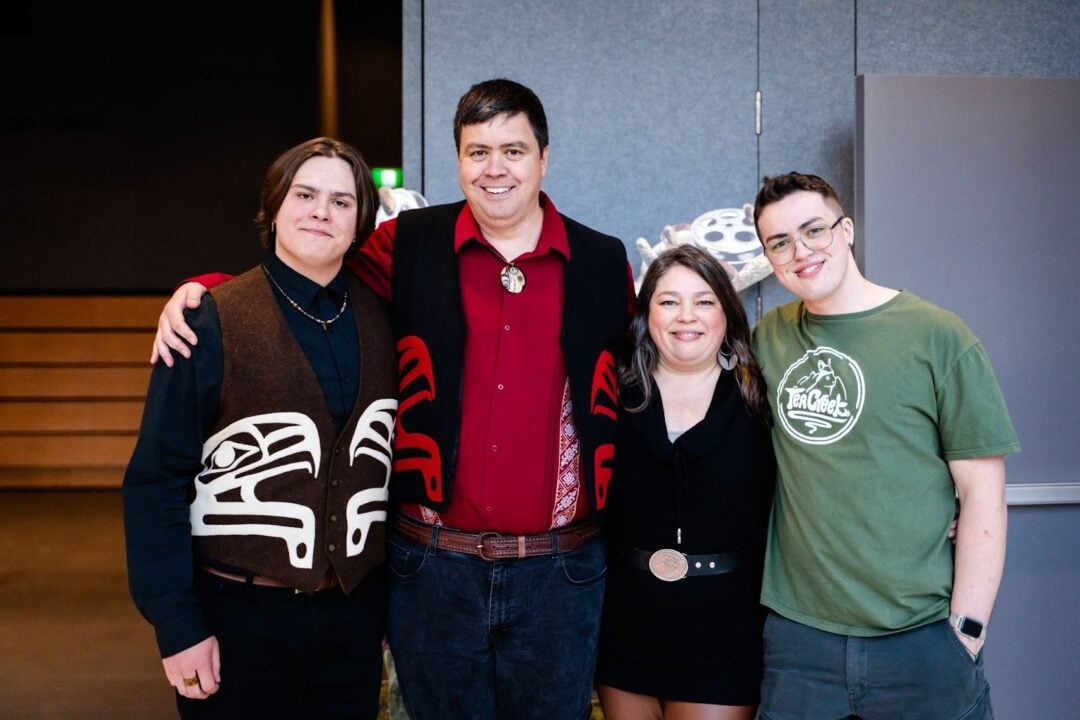
Ezra lives at home with his family in Kitwanga, in the beautiful North where the Skeena Valley opens into big sky and a bigger quiet. He works on his parents’ Tea Creek Farm and carves out time to write. Tea Creek is an Indigenous-led food-sovereignty project that combines hands-in-the-soil training, farming, and community building in one place.
We talk about influences for a minute. If we’re going retro, he lights up at The Scorpions. More recently, he’s been stuck on The Ocelots, twins from Ireland he recently came across. “They sing like Simon & Garfunkel,” he says, “beautiful, kind of mystifying songs.”
“Near the end of Grade 10, I decided to leave school behind and focus on my passions, my family, and my work.”
Ezra Beaton
When I ask if he’s in Grade 12, he smiles at the technicality. “I would be, yeah. Near the end of Grade 10, I decided to leave school behind and focus on my passions, my family, and my work.” The long bus rides and the classroom routine, he adds, didn’t feel worthwhile. “So, I’m in Grade 12, and not, at the same time.” He chose focus over attendance because that’s what his early years modelled: trust your gut, honour your responsibilities, and spend your time where it feeds you and the people around you.
Why He Plays: Joy First, Truth Always

Growing up on the edge of the Gitanmaax reserve shaped the kind of music he makes, joyful enough to make you dance, honest enough to make you look twice.
“I want to make people happy. I want to make people smile. I want to make people dance,” Ezra says. “And I also want people to feel something they don’t feel every day.” He pauses, then adds, “I also want to create change.”
“As an Indigenous artist living in an Indigenous community, there are a lot of things that, if I don’t experience them, I see them and think about them a lot.”
Ezra Beaton
If he can, he says, he wants to “spread a little bit of education,” not classroom-style, but the kind that comes from lived experience, from things many people don’t think about.
What does that include?
“As an Indigenous artist living in an Indigenous community, there are a lot of things that, if I don’t experience them, I see them and think about them a lot. Things like institutionalized racism, internalized prejudice, homophobia, transphobia, xenophobia, lateral violence… They’re hard to talk about and even harder to write or think about, but they need to be talked about.”
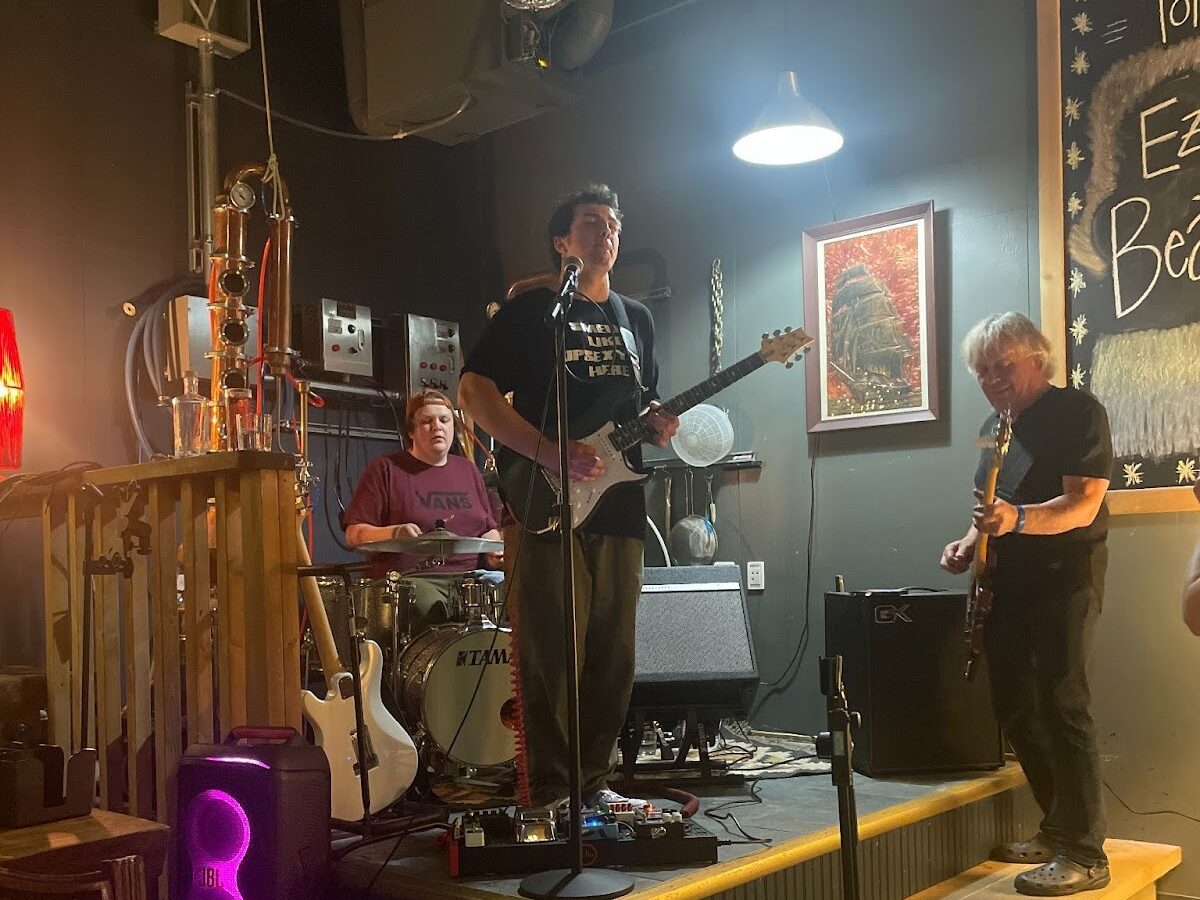
Naming those truths is one thing. Carrying them into a room full of people who might never have to face them, that’s where his song “The Earth Cries for Mercy” begins. “It was inspired by an open mic last spring in Hazelton,” he says. “An older gentleman pulled out this dusty acoustic guitar, said he hadn’t played live in about 15 years, and started into these protest anthems.” Between songs, the man said: “We’re all about keeping the peace, and we’re doing a pretty good job so far.”
“I agreed with him, up until the ‘doing a good job’ part,” Ezra says. “Because the reality is, there aren’t wars outside our doors. But a lot of people here are still suffering, and a lot of people don’t want to acknowledge that, even if our lives are easier than those in Gaza or Ukraine.”
“There are things that happen around us every day that no one wants to talk about.”
Ezra Beaton
He draws a line back to the valley where he grew up. “One of my best friends stayed with us for a month because he couldn’t live at home anymore.” He lets that sit for a beat.
“There are things that happen around us every day that no one wants to talk about. One of the things I work hard to do with my music is make it a little harder to ignore those things. If we stop ignoring them, maybe someday they’ll actually go away.”
From the Big Picture to One Person
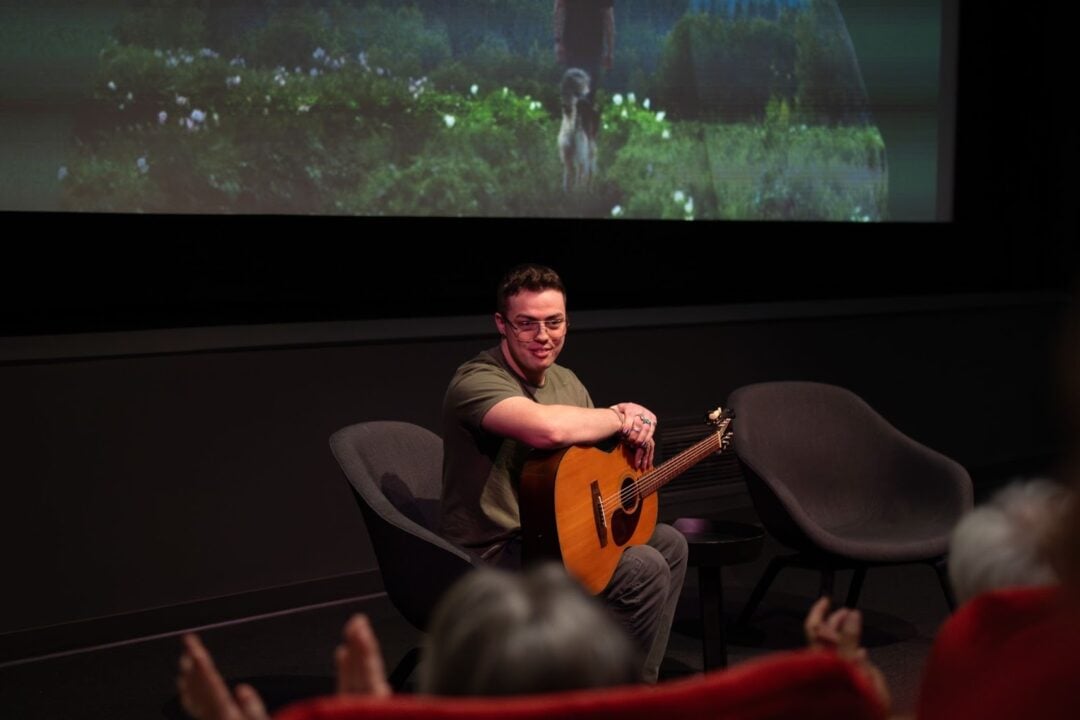
He lets the larger truths rest for a moment and shares something more intimate: one song reaching one person.
He tells me about a song he wrote for the first person he ever loved, a song about watching someone change under the pressure of the world around them. The first time he performed it was at an open mic in Terrace. After the set, a woman approached him and told him her sister had died two months earlier. When she closed her eyes during the song, she said, it brought her back to her.
He stops. “I didn’t think that something I created could ever do that. It was heartbreaking and heartwarming at the same time, and incredibly inspiring.”
That moment still gives him pause. “Having something like that said to me, I’m almost tearing up right now,” he admits. It is a testament to how seriously he takes the exchange between stage and floor.
Momentum, Mentors, and the EP Taking Shape
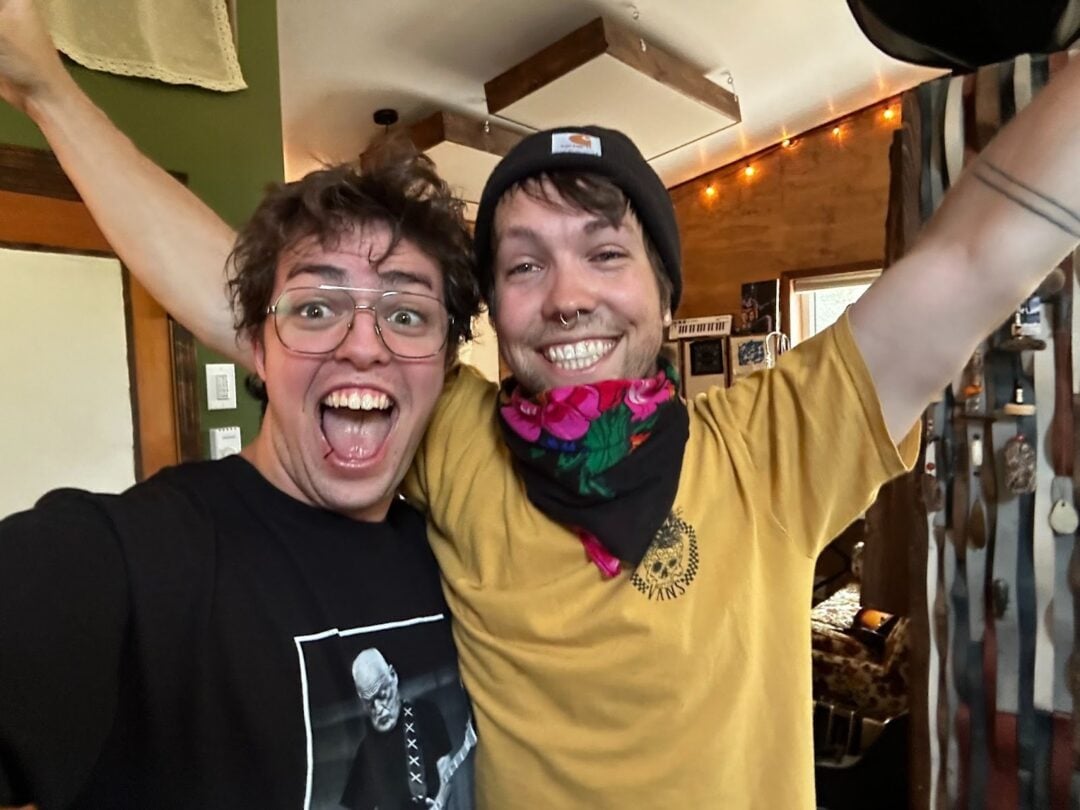
In the past year, Ezra’s momentum has only grown. He’s been gigging across the Northwest: Riverboat Days in Terrace, fundraisers, cafés, community halls. A video of him covering “Texas Flood” even drew Stevie Ray Vaughan comparisons.
“My goal, my dream, is to have music out by the end of this year.”
Ezra Beaton
“I’m super happy with where things are going,” he says. The amount of people who seem to like what I’m doing is overwhelming.”
Now he’s in Soni Quinn Studios, shaping his first EP alongside his longtime mentor, Elijah Quinn, the same musician who first inspired him as a kid. “My goal, my dream, is to have music out by the end of this year,” he says. Recording with Elijah feels right: “I was in a space created by my friend, recording with my friend, knowing he had my best interests at heart.”
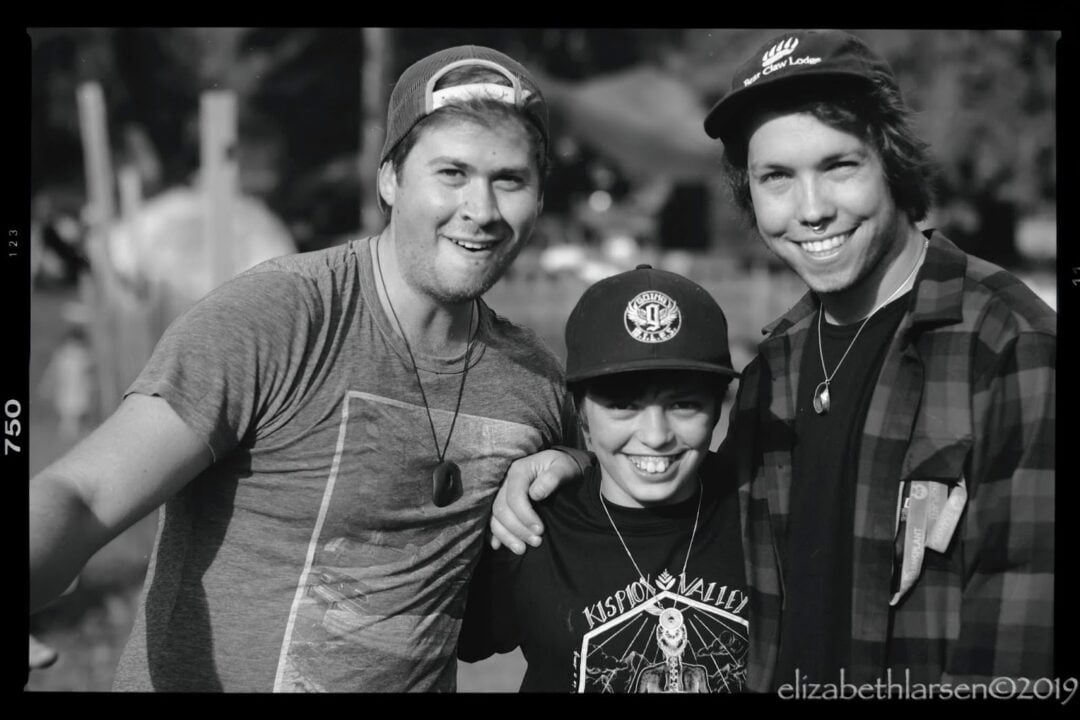
What’s on the EP? It’s a mix. Three songs are already recorded, with a fourth on the way. Some of the tracks reach back to when he was just beginning to understand heartbreak; others were written only this summer. Among them is a quiet acoustic piece dedicated to a family friend, his “godmother”, who died earlier this year after being denied the care she needed, he says, because of her skin colour. It’s a short song, but a powerful one, meant to hold both the sorrow of losing her and the joy of having known her.
The Making of a Melody
If you’re trying to reverse-engineer Ezra’s process, good luck; he’s allergic to factory settings. “The best songs I’ve written haven’t come from sitting down to write,” he says. Sometimes the process is slow. “Other times a song shows up almost whole, already formed by the time I sit down. It’s always changing; it’s never the same twice.”
“Any artist would agree the process of creating art is never the same twice, and that’s what makes art, art.”
Looking Ahead: Germany and Beyond
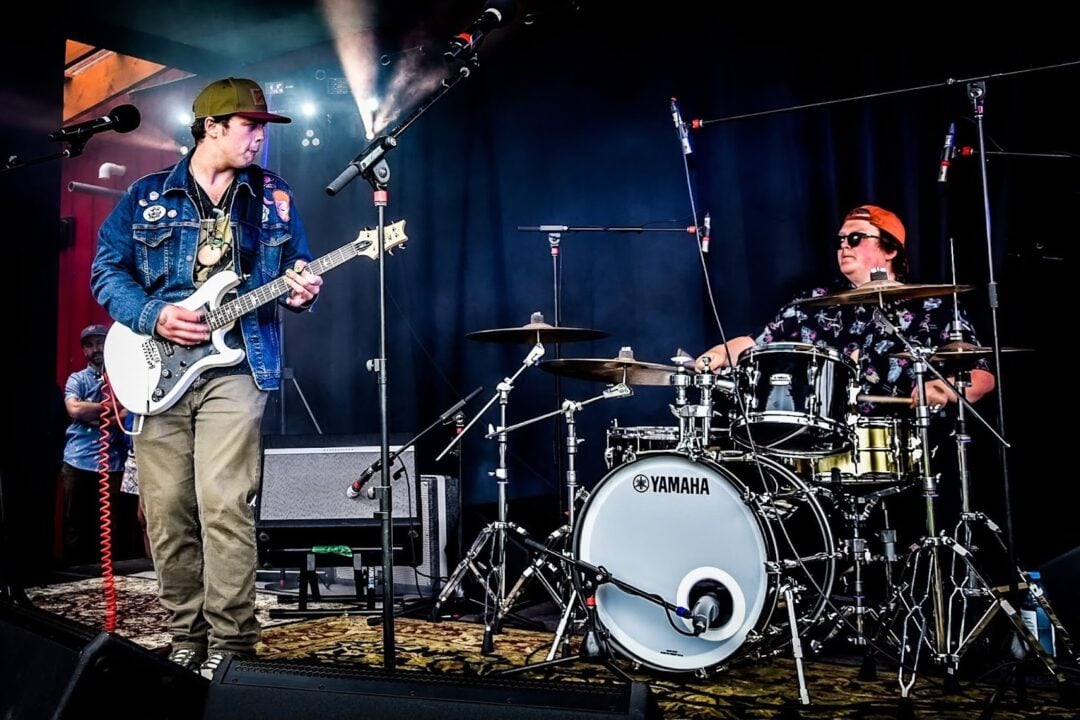
Three years ago, the idea of leaving the farm made him feel anxious. Now the fear has faded, but the questions have grown.
“I’m not as scared about it as I used to be,” he says. “I do know that I want to go elsewhere to pursue music and art… Right now, I’m looking at Europe with my brother. We’re thinking about Germany, but it’s not set in stone yet. It’s in the back of my brain, an idea I’m working on.”
It isn’t a whim. His dad spent Grade 11 in Germany as an exchange student, and the family stayed close with friends there. Why Germany? What draws him there is personal and practical.
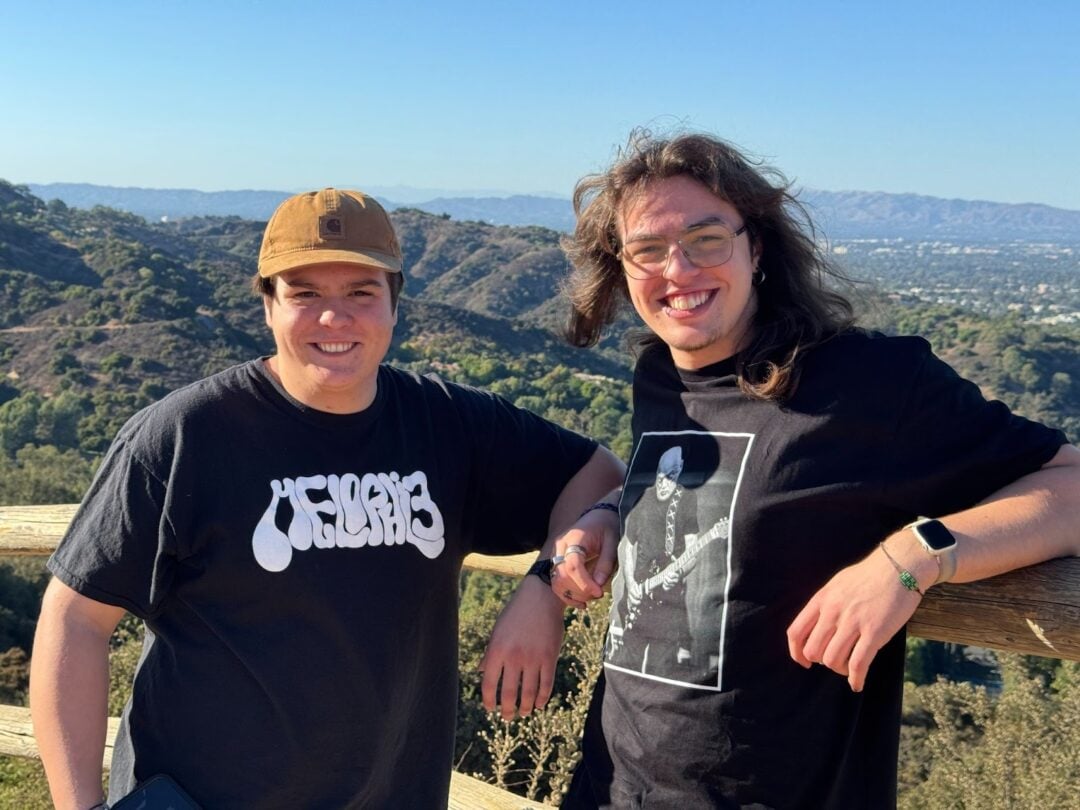
“I’ve visited intermittently since I was four years old,” he says. “Going back is like seeing a second family, and that in itself inspires me.”
Chasing Songs, Chasing Change
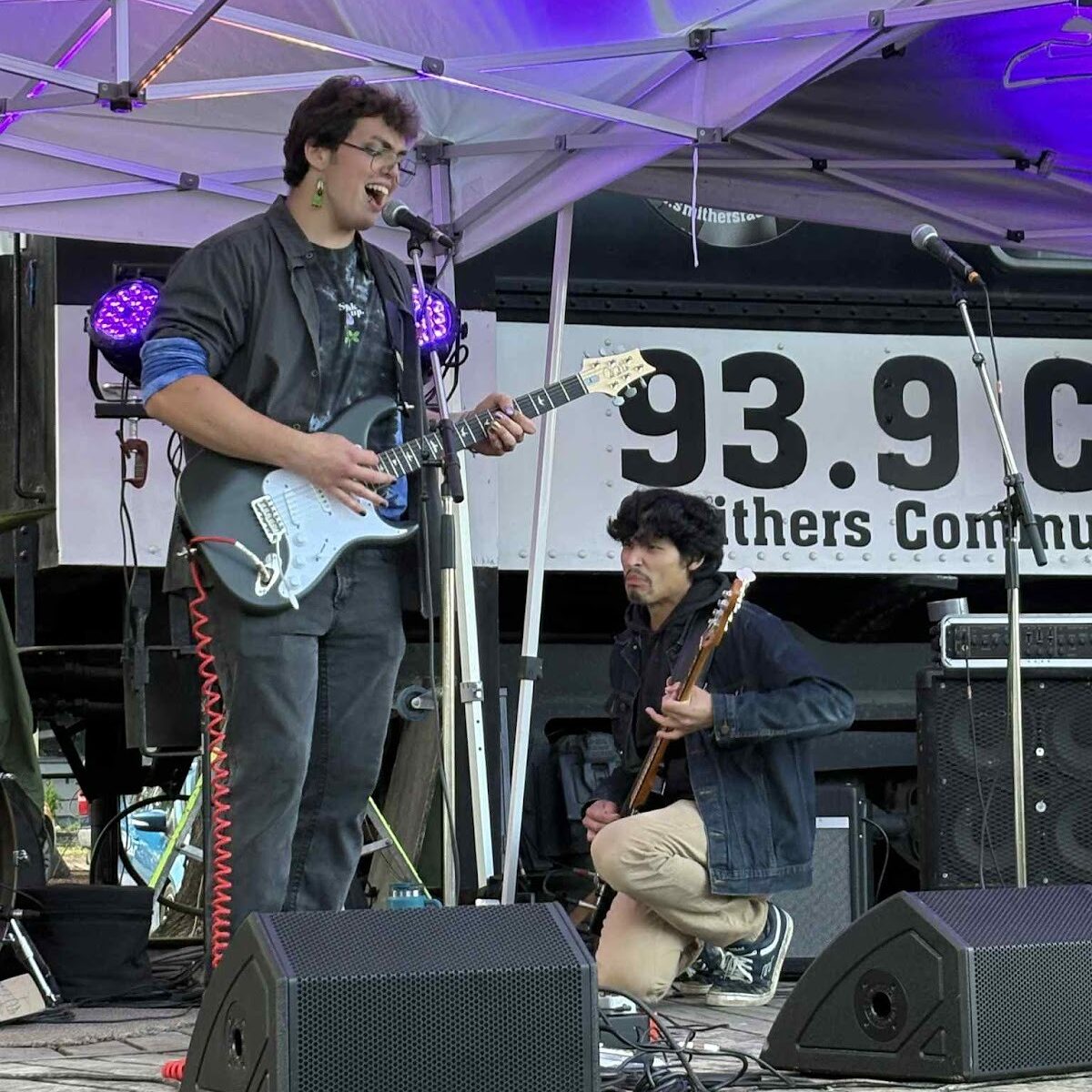
Beneath the easy humour, Ezra is carrying questions most people don’t face until much later in life. “I’m still figuring out whether being a musician is the right thing,” he says. “For me, personally, it’s 100% what I want to do… But the reality is: the world doesn’t need another kid who can play guitar. The world probably needs another activist, or another farmer, or another scientist.”
“I’ve realized I need to do more. Everyone does. It’s ugly to think about, that there are things going on in the world that we’re not directly stopping.”
Ezra Beaton
He knows the counterpoint, that music can be a form of activism, but he won’t let himself take the easy way out. “If this music thing works out, I’ll have a platform… But the chances of becoming a successful artist are incredibly low. Why don’t I give up on this music thing right now and become an activist? I have time, but the people who are suffering in the world don’t. That’s the struggle I have. I want to make change happen now.”
That tension bleeds into his smallest decisions. He catches himself mid-purchase: if you can buy a donut, you can donate a donut’s worth. New guitar strings, twenty dollars that could feed someone. He winces telling me he just paid $2,186 for a guitar. “Sometimes I think maybe I should sell most of what I own and send ten grand to Gazan relief efforts instead.”
“I’ve realized I need to do more,” he says. “Everyone does. It’s ugly to think about, that there are things going on in the world that we’re not directly stopping.”
Becoming and Not Rushing It
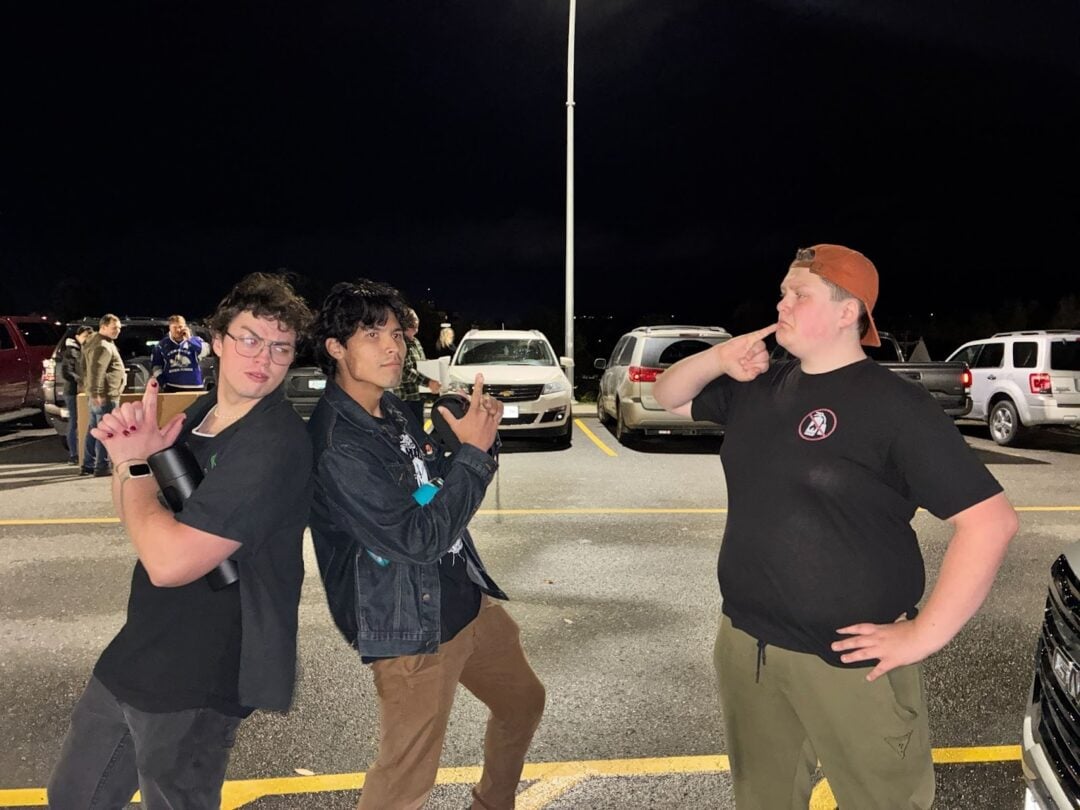
Still so young, Ezra is standing on the threshold, between home and the world, between child and adult, between artist and activist. He feels the urgency, but he isn’t sprinting. He’s trying to build the person who’ll carry the songs.
“I’m trying to make the most of my youth while I still have it,” he says. “‘Seventeen-year-old singer-songwriter’ has a better ring to it than just ‘singer-songwriter.’ But I also want to take my time, to build myself before I step fully into the wider world.”
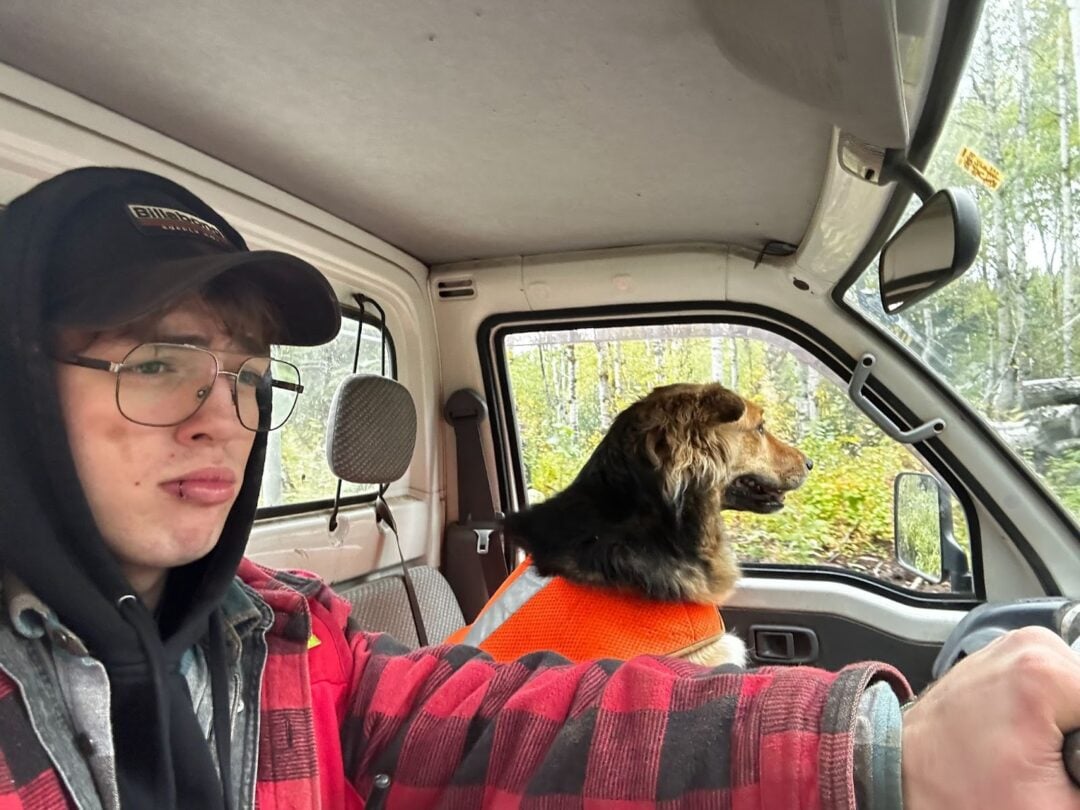
And what’s keeping him from booking that ticket to Berlin?
“I think it’s sentimentality and a little bit of fear that I’m unprepared for life,” he admits. “I’ve lived a very privileged life, and I’m not sure I’m ready to take on the world.” “I also really love my dogs and wouldn’t want to leave them behind.” He grins. “Honestly, that’s one of the biggest things holding me back, it’s hilarious to say.”
When I ask how his parents would feel about that, he laughs. “They know I sleep with my dog on my bed almost every night, and she gets depressed when I leave for more than a day.”
The Last Chord (For Now)
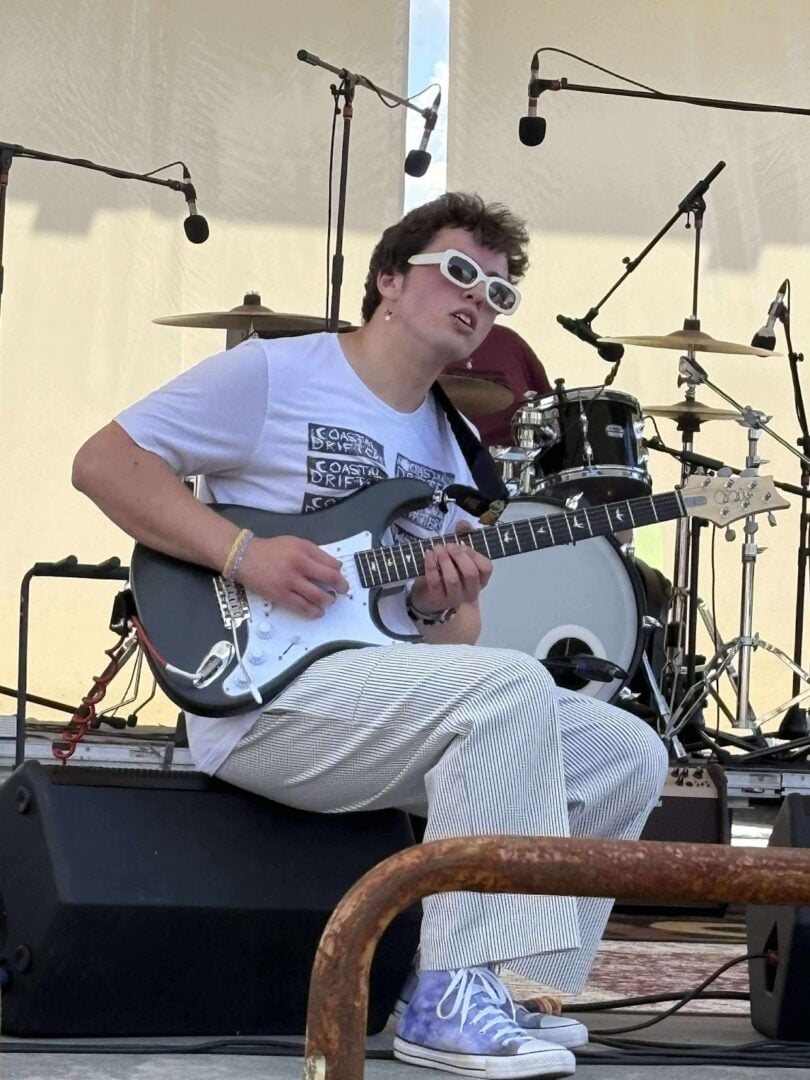
Since we first talked, Ezra’s circle has expanded: shows, studios, mentors, strangers who hear themselves in his songs. But the centre has stayed the same: a young artist who plays to make people happy, writes to make people think, and is learning how to carry both at once.
And on most nights, before the next song finds him, there’s a dog on his bed, a valley outside the window, and a 17-year-old trying to become the kind of person whose art changes the room and, eventually, more than the room.
If you liked this piece, go meet younger Ezra in our first interview. Read the original conversation with Ezra here: ‘Pursuing A Career Like A Lawyer Or A Doctor, That’s Never Appealed To Me’ – West Coast NOW



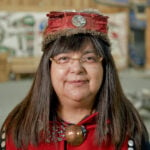

Very proud of you Ezra and all your hard work
Outstanding article!
I am an older musician who met Ezra a few years ago in Nanaimo where I had also met Noah and James Vickers. Ezra struck me then as an impressive young man, and he continues to be, both as a musician and as a formidable person who touches those around him. Wonderfully written article. See you soon, Ezra.